DIY Leak Detection Tips for Florida Residents
Detecting leaks early can save you from extensive water damage...
Plumbing emergencies can occur unexpectedly and lead to significant damage if not handled promptly. Knowing how to manage these situations effectively can help minimize damage and restore normalcy quickly. Here’s a guide on what to do when you face a plumbing emergency.
Immediate Action: The first step in any plumbing emergency is to turn off the main water supply to prevent further water damage. Locate the main shut-off valve, typically found in the basement, crawl space, or near the water meter, and turn it clockwise to close it.
Why It Matters: Shutting off the water stops the flow and reduces the risk of flooding and damage to your property. It’s crucial to address this step as soon as you detect a problem.
Immediate Action: Evaluate the extent of the problem to determine the best course of action. Look for visible signs of damage, such as leaks, flooding, or broken pipes. Identify the source of the issue if possible.
Why It Matters: Understanding the nature of the emergency helps you decide whether you can handle the situation yourself or if you need professional help. Accurate assessment ensures that you take the right steps to address the issue effectively.
Immediate Action: Use towels, buckets, or containers to catch and contain any leaking water. If possible, move furniture or valuables away from the affected area to prevent further damage.
Why It Matters: Containing the damage helps prevent water from spreading and causing additional harm to your home’s structure and belongings. Prompt action can minimize the overall impact of the emergency.
Immediate Action: Take photos or videos of the damage for insurance purposes. Documenting the situation can be useful when filing a claim or seeking reimbursement for repairs.
Why It Matters: Proper documentation helps support your insurance claim and provides a record of the damage and repair process. This can be important for ensuring you receive appropriate compensation.
Immediate Action: If the situation allows, perform basic repairs to control the problem. For example, you can use a pipe repair clamp or seal a small leak with plumber’s tape. If a fixture is leaking, try tightening connections.
Why It Matters: Basic repairs can help manage the emergency until professional help arrives. However, it’s important to know your limits and avoid making the situation worse.
Immediate Action: Reach out to a licensed plumber for assistance. Provide them with details about the emergency and any steps you’ve already taken. Professional help is crucial for addressing complex issues and performing necessary repairs.
Why It Matters: Professional plumbers have the expertise and tools required to resolve plumbing emergencies effectively. Timely intervention by a professional can prevent further damage and ensure proper repair.
Immediate Action: If water has come into contact with electrical outlets or appliances, avoid using them until they are inspected and deemed safe. Turn off electricity at the breaker box if necessary.
Why It Matters: Water and electricity are a dangerous combination. Ensuring that electrical systems are not compromised helps prevent electrical shocks and potential fire hazards.
Immediate Action: After addressing the immediate plumbing issue, focus on cleaning up the affected area. Use fans, dehumidifiers, or open windows to dry out wet areas and reduce the risk of mold growth.
Why It Matters: Prompt cleanup helps prevent secondary issues such as mold and mildew growth. Proper drying reduces long-term damage and maintains a safe living environment.
Immediate Action: Keep an eye on the repaired area to ensure that the problem has been fully resolved. Check for any signs of recurring leaks or other issues that may need further attention.
Why It Matters: Monitoring the area ensures that the repair was successful and helps detect any new problems early. This can prevent additional damage and ensure the long-term effectiveness of the repair.
Immediate Action: Evaluate the cause of the emergency and consider steps to prevent similar issues in the future. Regular maintenance, inspections, and updates to your plumbing system can help avoid emergencies.
Why It Matters: Understanding the root cause of the problem and taking preventive measures can help you avoid future plumbing emergencies. Regular maintenance and timely repairs contribute to a more reliable plumbing system.
Handling a plumbing emergency effectively requires prompt action and clear understanding. By shutting off the water, containing damage, documenting the situation, and seeking professional help, you can manage emergencies efficiently and minimize damage to your home. Regular maintenance and preventive measures also play a crucial role in avoiding future issues and maintaining a functional plumbing system. If you encounter a plumbing emergency, taking these steps will help you address the situation calmly and effectively.
Detecting leaks early can save you from extensive water damage...
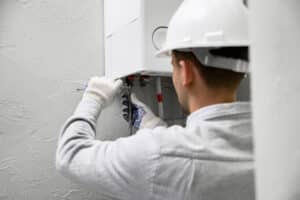
Tankless water heaters are becoming increasingly popular among homeowners looking...
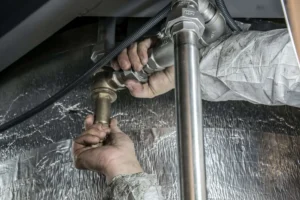
Detecting leaks early can prevent significant damage and costly repairs....
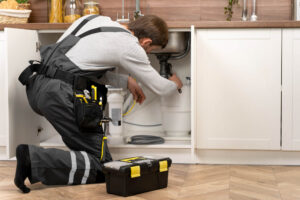
Professional drain cleaning is essential for maintaining a healthy plumbing...
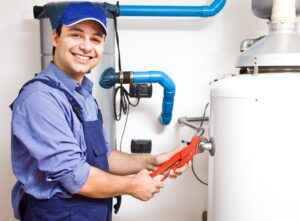
Water heaters are a crucial part of your home’s plumbing...
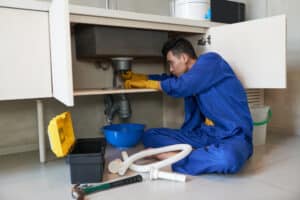
Chemical drain cleaners are commonly used to tackle clogs and...